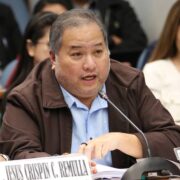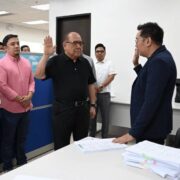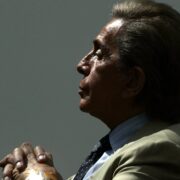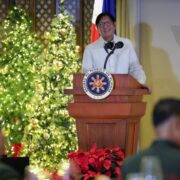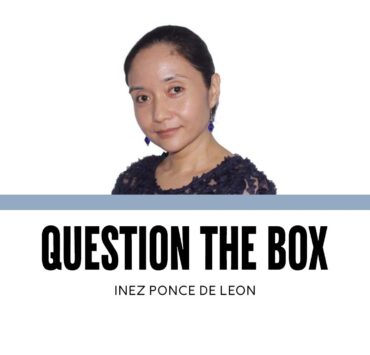The flag on my wall

In my small room—barely big enough to fit a desk, wardrobe, and single bed—just opposite the entranceway, hangs my Filipino flag. It dominates the entire wall, stretching 5 feet across and 3 feet down, engulfing the white brick wall in red, white, and blue.
Given its provocative location, I always see my flag when I walk in. It always evokes that same sinking feeling; it always sparks that same conflict: what does it mean to be Filipino?
I’ve grappled with this question for a long, long time.
Most of those who read the Philippine Daily Inquirer probably have a notion of “being Filipino.” Perhaps it’s the experience of growing up in the province, the history of the country, or the language they’ve grown up speaking their entire life.
For me? The only claim I have to “being Filipino” is Article IV, Section 1(2) of the 1987 Philippine Constitution: “The following are citizens of the Philippines: […] Those whose fathers or mothers are citizens of the Philippines.”
I was born in the United Kingdom to Filipino immigrants.
I don’t have memories of waking up to the sounds of crickets in the provinces. I didn’t have to slog through Philippine history class. I didn’t even know who José Rizal was until I was 10. And for language? A simple “hindi kita maintindihan (I don’t understand you)” should make my relationship with Tagalog explicitly clear.
If you take that section of the Constitution out, I lose any claim to being Filipino.
But even then, being born in the UK doesn’t mean I can call myself British. I don’t have memories of Sunday tea at grandma and grandpa’s, and I don’t have any British lineage—my race makes that glaringly evident.
If you change the place I was born, I also lose any claim I have of being British.
So I find myself balancing this ever-so exhausting cultural tightrope: too British to be considered Filipino, but too Filipino to be considered British.
And for most of my life, I conceded to this reality. Conceded to the idea that I was never “Filipino enough” to call myself one, all stemming from the idea that I had nothing definitive linking me to the culture.
Then, a shift came. Not in some grand trip back home, or in some profound, eye-opening realization—but in a college application. I was filling out the demographics section and eventually encountered the “background” information—a section that I normally filled out in a zombie-like daze.
But for reasons I still don’t know, I paused on it for a second, reading out the list of countries. Malaysia, Pakistan … Philippines. I simply let the cursor hover over the check box and allowed myself to think.
When confronted by my flag, I’d always questioned what it meant to “be Filipino,” but I’d always backed down in resignation. But now? Now—in a college application of all places—I found myself really questioning it.
And more than that, questioning why I was so quick to dismiss it.
Why did I dismiss myself just because I didn’t grow up in the Philippines? Was I also dismissing the millions of other Filipino diaspora who also didn’t? Are they not Filipino, too?
Why did I dismiss myself just because I didn’t know about Philippine history? Didn’t everyone at one point or another not know about José Rizal or Magellan? Doesn’t making the effort—even as late as 10—to learn who they were count?
Why did I dismiss myself just because I couldn’t speak Tagalog? Sure, I still can’t, but whenever I take the time to pronounce a word, or ask what a word means—doesn’t that mean something?
The more I thought about it, the more my seemingly concrete logic fell apart. “Being Filipino” doesn’t rely on unchangeable, set in stone requirements you have to meet—it relies on upholding the values of what makes our country great. The values our fellow countrymen fought and died to protect.
The perseverance of the Filipinos against the Spanish, Americans, and Japanese. The warm hospitality of the Filipino which makes us world-renowned for being welcoming to travelers around the world. The sense of community Filipinos have when talking to each other over the dinner table over a good “bistek.”
These are the things that make a Filipino: not where you were born, not your knowledge, and certainly not a section of the Philippine Constitution.
And there I was, God-knows-what time of night, basking in the blue hue of my laptop, filling out my college application. My hand was firmly gripping the computer mouse, with the cursor over the checkbox. I looked across from me, and even in the dimly lit room I could just about make it out: the red, white, and blue; the golden sun; the three stars.
So what did I do?
I clicked the checkbox.
—————-
Jaylourd Patrick Dedal, 17, is a second-generation Filipino immigrant at Bexhill Sixth Form College in the United Kingdom.





